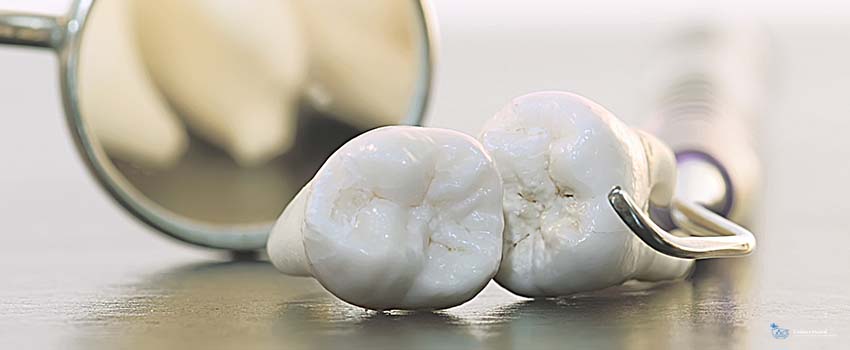Young children love to see their adult teeth grow in and are happy to lose their baby teeth. However, wisdom teeth are a different story for teenagers and young adults.
Wisdom teeth, also known as third molars, can cause excessive crowding the your mouth or can develop at an awkward angle. This can lead to discomfort and other serious dental problems.
Many dentists today recommend that wisdom teeth be extracted before they erupt. The U.S. National Library of Medicine research even shows that around 5 million Americans have wisdom teeth extracted yearly.
Wisdom tooth removal is the most appropriate measure to protect the healthy overall dental condition. It is a common procedure requiring more extended period of rest and recovery. For this reason, it is best to choose the most convenient time for everyone.
Summer is the best season to have wisdom teeth extracted. More than the warm breeze and the clear sunny sky, having all the time in the world makes this time perfect for your dental care. Read on and learn more about wisdom tooth removal and why summer is the popular time of the year to get this procedure done.
What are Wisdom Teeth
Wisdom teeth are the third and final set of molars that grow on the top and bottom of the mouth. They typically erupt between the ages of 17 and 21 or when people are possibly a bit “wiser” than when most of their adult teeth arrived.
They may sound essential and relevant, but no studies have proven the real purpose of wisdom teeth yet. Although these adult teeth don’t usually pose a problem by themselves, they can cause problems if there isn’t enough room or they are not straightened when growing.
Signs Your Wisdom Tooth is Coming
An X-ray of the teeth may be all that is needed to confirm your wisdom teeth are coming in. A panoramic X-ray, which captures the entire jaw and teeth in one image, can help you determine the location of your wisdom teeth.
Without an X-ray, you might still know that your wisdom teeth are about to emerge because you start to notice unpleasant symptoms. Here are some common signs that your wisdom teeth are coming in:
1. Irritation of the Gums
One of the most apparent signs of adult teething is feeling tenderness or Discomfort in the back of your mouth. It can happen on one side or both. You can also find some swelling around the gums behind your second molars as one sign that your wisdom teeth are coming in.
2. Aches and Pains
Wisdom teeth growth can cause a dull ache at the back of your jaw, leading to more severe, frequent pain when not managed right away.
Adult teething can sometimes cause jaw, eye, and ear pain.
Many factors can cause pain and discomfort when wisdom teeth come in. Some of them are:
- Partial eruption is the leading cause of wisdom tooth pain. If the tooth is only partially erupted, bacteria can get under the gum and cause infection, stiffness, swelling, pain, and swelling.
- Impaction. Sometimes, the space required for the wisdom tooth to erupt fully is insufficient. The wisdom tooth is considered “impacted” if it grows at an odd angle that can put pressure on neighboring teeth.
- Cysts and tumors. If not treated promptly, an impacted wisdom tooth could lead to cancerous tumors or cysts and destroy other healthy teeth, including the entire jawbone.
3. Redness
As your wisdom tooth pushes through, the gums on top of emerging teeth may turn dark pink or red.
4. Small White Specks
Small white specks behind your second molar may signify that your wisdom teeth have begun to emerge. These white specks are actually the top of your wisdom teeth breaking through the gum line.
Why Get Your Wisdom Tooth Removed
While most patients will feel pain when their wisdom teeth erupt, this is not the only sign that a wisdom tooth is in trouble and should be removed. The shape of your mouth and the health of your other teeth will also determine if wisdom teeth should be removed. Generally, your dentist will advise emergency wisdom tooth removal if there are:
1. Damaged Neighboring Teeth
Your permanent teeth are already in their proper positions, so this additional set of molars can invade their space and cause them to shift in angles that sometimes cause pain, bite problems, and overcrowding. Sometimes, improper wisdom tooth growth makes it difficult to floss and brush effectively, leading to tooth decay. If treatment is delayed, you may need additional procedures to straighten the impacted neighboring teeth.
2. Jaw Damage
Wisdom teeth, like all teeth, erupt from the jaws through the gums. However, improper teeth eruption can shift the jawline and other teeth, restricting the mouth and causing pain and stiffness. Damage to your jawbone can impact your mouth’s function, making it challenging to eat, drink, or speak.
If left untreated, cysts may form around newly erupted molars. This formation of cysts can cause hollowing of the jaw bones as well as nerve damage to the neighboring healthy teeth.
3. Sinus Problem
The oral health of an individual is as important as overall health. It’s vital to be aware of any symptoms or ailments.
As we all know that the nose and mouth are interconnected, it is evident that impacted wisdom teeth can sometimes cause sinus problems. One of the common signs that your wisdom teeth should be removed is when these new molars cause sinus pressure, pain, and congestion.
4. Sensitivity, Pain, and Discomfort
Many patients are unaware that their wisdom teeth have been affected until they feel pain. The growth of your new molars can be challenging to detect and often starts in the most minor places.
Before it becomes apparent that your wisdom teeth are growing at an angle relative to other teeth, schedule an appointment with your dentists right away. Early dental care can prevent your wisdom teeth from impacting your entire jaw and crowding out the neighboring teeth in your mouth.
5. Inflamed Gums
Dental health is not just about your teeth. The gums also play an essential role as it is always subject to impacted wisdom teeth. Improper growth of wisdom teeth can cause gum swelling, tenderness, or reddish spots, making cleaning challenging and eventually leading to tooth decay and cavities.
What to Expect During Wisdom Tooth Removal
An X-ray will determine whether a dentist or a specialist surgeon should perform your wisdom tooth removal. Before the procedure starts, discussing any charges or payment methods is essential.
How the wisdom teeth are positioned or whether they have erupted through the gums can influence the complexity and cost of your wisdom tooth extraction. In Florida, the basic procedure for wisdom tooth removal costs between $75 and $200, while the costs of removing impacted teeth range between $225 and $600.
Once everything is finalized, your dental care team will proceed to remove your wisdom teeth. Here are the three basic procedures to expect during wisdom tooth removal:
1. Anesthesia
Your dentists or surgical specialist will numb the area where your wisdom tooth is growing. A local painkiller will be administered, but sometimes, sedatives are prescribed to ease your anxiety if you are anxious about the procedure. The sedative is usually injected under your arm.
Wisdom tooth removal is rarely performed under general anesthesia. This is only used occasionally when the procedure takes place in a hospital setting. In this instance, however, you will still be able to go home the same day as your procedure.
2. Wisdom Tooth Extraction
A small incision or cut is made to the gum to access your wisdom tooth. Your surgical specialist will cut the tooth into smaller pieces to make it easier to extract through the opening. In some cases, small bones surrounding the tooth need to be extracted as well if your new moral has not yet come through the gums.
Your dentist or oral surgeon may also need to put some pressure to expand the tooth socket by rocking it back and forth. Since the area will be numb, you should not feel pain after removing your wisdom teeth.
The time it takes to extract a tooth can vary. For simple emergency wisdom tooth removal, it may take only a few minutes. However, it could take more than 20 minutes for more complex procedures.
3. Post-Surgery
Dissolving stitches are sometimes used to seal any incisions made. It takes seven to ten days for the stitches to dissolve naturally.
After your surgery, your dentist might place gauze in the extraction area. You will be asked to maintain pressure by biting your teeth together for as long as an hour. This pressure is necessary to create a blood clot in the socket of an empty tooth as part of the healing process.
Antibiotics might also be prescribed if you are suffering from an ongoing infection. After your wisdom tooth removal, you should avoid the following for 24 hours:
- Strenuous physical activity
- Smoking and drinking alcohol
- Rinsing your mouth with liquid
- Drinking hot liquids like tea or soup
Why Summer is The Best Time for Wisdom Tooth Removal
The sun is shining bright now that summer is upon us. This season is the best time to relax by the pool and enjoy cool summertime treats. While wisdom tooth removal is probably not something you want to do on your summer vacation, here’s why this is the best time to get your wisdom teeth extracted:
- It is crucial to have your tooth extracted as soon as possible. If your dentist requires your tooth to be removed, you should not delay. Your oral problem will only worsen the longer you leave an infected, damaged, or impacted tooth in your mouth.
- Your schedule will be more flexible and available. This summer, you have more time off from school and work, making scheduling dental appointments much more manageable. Furthermore, you do not have to think of missing school or catching up with work while recovering.
- Relaxing at home, school, or work after a tooth extraction is better. You will feel more at ease if you stay home than in meetings or classes after your procedure. Staying at home can also hasten recovery and get you back to enjoying your summer quickly.
How to Enjoy Summer While Recovering
Dental extraction doesn’t have to be something you look forward to this summer, but it doesn’t mean you have to fear it. You can still enjoy your summer vacation even after your procedure. Here’s how:
- Enjoy soft summer treats. The recovery period following tooth extraction allows you to enjoy some delicious, cold summer food. You can still enjoy ice cream, popsicles, milkshakes, smoothies, jello, and chilled applesauce as they will not only prevent irritation at the site of the surgery but also numb it.
- Relax and enjoy your rest. It is essential to take it easy after a tooth extraction to ensure a smooth healing process. Summer is a great time to relax by the pool or beach, read a book, or watch a movie while recovering.
- Keep cool near the pool. Keeping hydrated is essential for healing. You can stay cool despite the summer heat by taking a break under the shade or floating in the pool. Another great way to cool down and promote a healthy recovery is to drink plenty of water.
Protect Your Sunny Smile
Complications in your wisdom teeth can lead to tooth decay and gum disease. While ice packs and good oral hygiene can temporarily ease the pain, ignoring wisdom tooth symptoms could have serious health consequences. Talk to your dentist immediately to determine the best option for your dental extraction.
Century Dental has been providing exceptional dental health care services in Florida. Improve your chances of smoother recovery and quicker wisdom teeth extraction when you schedule an appointment with our dentists near Treasure Island, FL.





